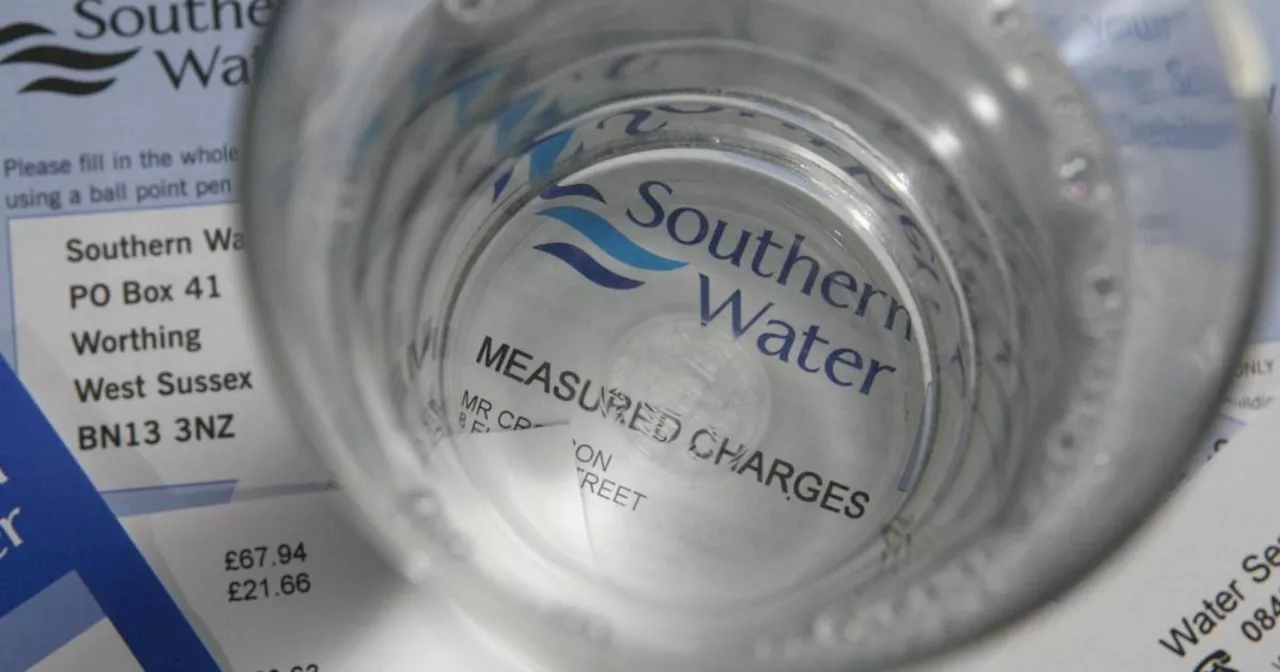Water bills across the UK are set to rise by an average of 26%, adding £123 to the annual average bill. While this increase affects all regions, some, particularly Southern Water customers, will face even steeper hikes of up to 47%. Critics argue that this rise is a direct consequence of privatization and underinvestment in essential infrastructure, while water companies point to the need to address aging systems and pollution concerns.
People across the UK are facing a significant increase in their annual water bills, with the average bill rising from £480 to £603 starting April 1st. This represents a 26% jump, equivalent to an additional £10 per month. While this average increase will affect millions, certain regions are experiencing even steeper hikes. Southern Water customers are set for the highest increase, with bills soaring by 47%, adding £703 to their yearly expenses.
Other regions facing substantial increases include Hafren Dyfrdwy (32%), South West Water (32%), Thames Water (31%), and Yorkshire Water (29%). Matthew Topham, Lead Campaigner at We Own It, expressed outrage at the situation, stating that it's unacceptable for the wealthiest firms to profit from these water bill increases. He highlighted the affordability crisis faced by many households, predicting that one in four will have to cut back on essential items like food to manage these rising costs. While water bills might not be as burdensome as other energy bills, Topham stressed that this hike will push many individuals further into hardship during the current cost of living crisis.The reasons behind these increased water bills are multifaceted. Water companies require billions of pounds to address critical infrastructure issues, including repairing sewers, drains, and reservoirs that have contributed to water pollution. However, due to the privatization of the water industry, these companies are driven to generate profits to attract shareholder investments. Adding to the complexity, many water companies are burdened with substantial debts, amounting to a collective £60 billion for the largest firms. Topham argues that these price hikes are a direct consequence of the companies' underinvestment in essential maintenance and their accumulation of debt to enrich shareholders and creditors. He contrasts this situation with Scotland's publicly owned water firm, which has implemented minimal price increases because all profits are reinvested in the business rather than distributed to shareholders, leading to more efficient operations.Ofwat, the economic regulator for the water industry in England and Wales, plays a crucial role in this process. Every five years, regional water companies submit plans to Ofwat outlining their investments in sewer, drain, and reservoir upgrades. Ofwat evaluates these plans and issues a draft ruling in July, followed by six months of negotiations between the regulator and water companies regarding the permissible price increases. In December, Ofwat publishes its final decision, which is then announced by Water UK, the representative body for the water industry. While these announced increases reflect Ofwat's final decision, they are adjusted for inflation, resulting in higher figures compared to the initial December announcement. Water UK's chief executive, David Henderson, acknowledged the difficulty of these price hikes, stating that while investment in water and sewage infrastructure is essential, he understands the burden this places on consumers. He emphasized the industry's commitment to investing a record £20 billion in 2025-26, aiming to support economic growth, build more homes, secure water supplies, and prevent sewage from entering rivers and seas. However, critics argue that the problem of rising water bills has worsened since privatization in 1989. Despite this, no new reservoirs have been built in England and Wales during this period. Tim Farron, Liberal Democrat environment spokesman, labeled it a 'national scandal,' accusing water companies of failing to invest in infrastructure repairs while executives enrich themselves with bonuses.The government has responded to public outcry by launching an independent commission to review Ofwat's operations. Environment Secretary Steve Reed emphasized the public's right to be angry about the consequences of Conservative policy failures. He pledged that a Labour government would protect funds earmarked for investment, preventing them from being diverted towards bonuses and shareholder payouts. The government aims to clean up rivers, lakes, and seas permanently. Looking ahead, the UK faces a challenging period as households grapple with these substantial water bill increases. Topham concludes by proposing a solution: bringing water companies under public ownership, a measure advocated by the UN. He argues that this approach would be fairer and more aligned with global best practices, as 90% of the world already operates under public water management systems
WATER BILLS OFWAT PRIVATIZATION COST OF LIVING CRISIS WATER COMPANIES UK
United Kingdom Latest News, United Kingdom Headlines
Similar News:You can also read news stories similar to this one that we have collected from other news sources.
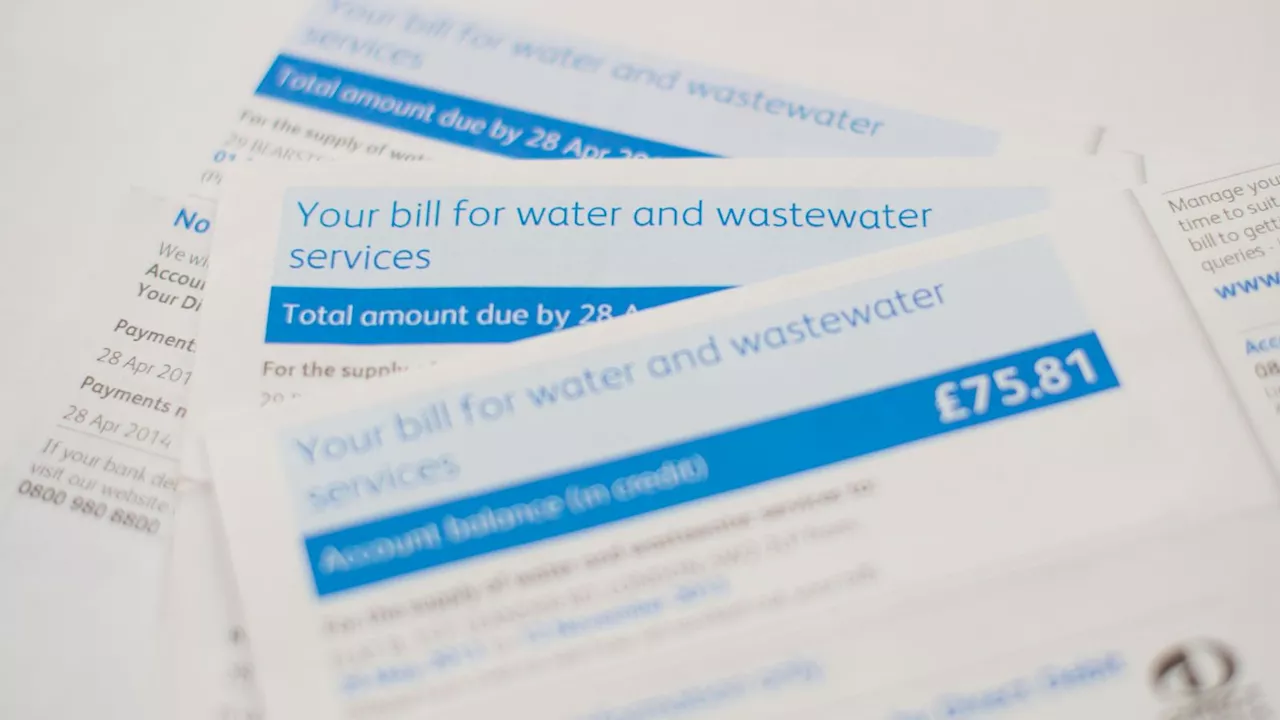 Water Bills in England and Wales Soar by 26% Amid Infrastructure InvestmentAverage annual water bills in England and Wales are set to jump by 26% or £123 due to new pricing regulations aimed at funding essential infrastructure upgrades. Water UK, the industry body, confirmed the increases, which will take effect from April 1st, 2025.
Water Bills in England and Wales Soar by 26% Amid Infrastructure InvestmentAverage annual water bills in England and Wales are set to jump by 26% or £123 due to new pricing regulations aimed at funding essential infrastructure upgrades. Water UK, the industry body, confirmed the increases, which will take effect from April 1st, 2025.
Read more »
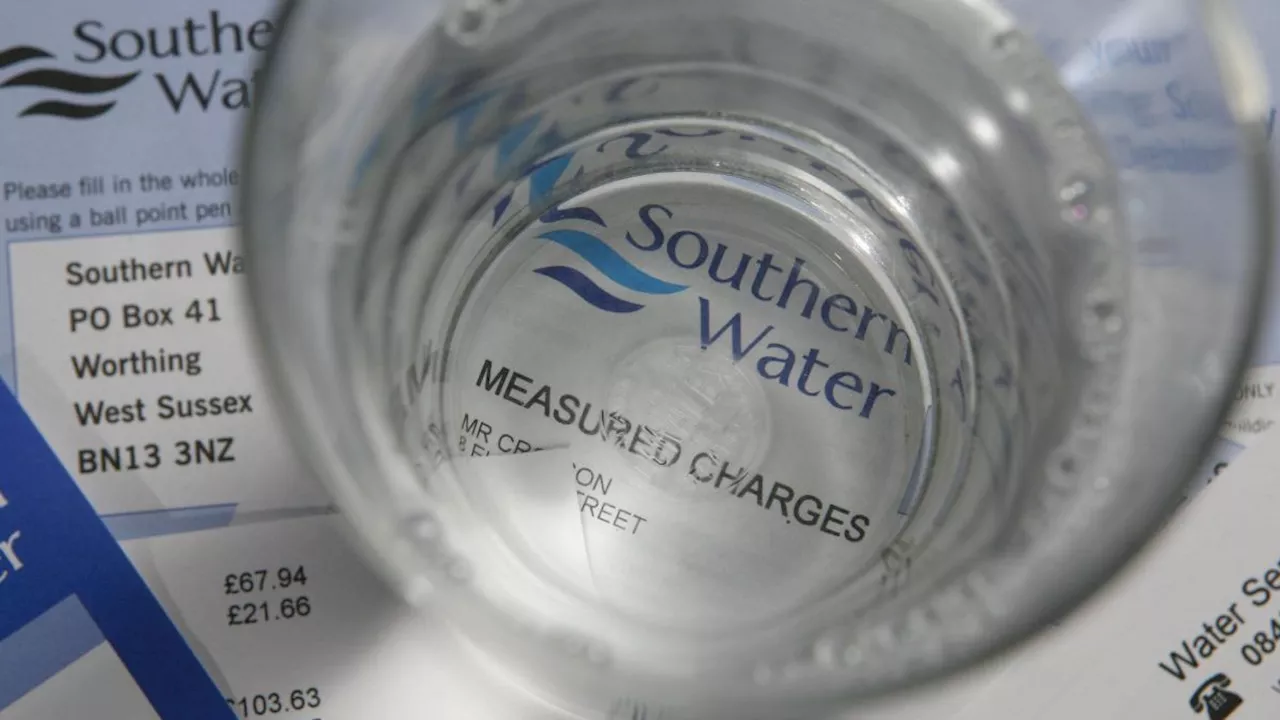 UK Water Bills Soar by an Average of 26% as Companies Face BacklashMillions of households in England and Wales will see their water bills rise by an average of 26% from April 1, 2024, with some facing even steeper increases. This comes amid public criticism of water companies for sewage spills and under-investment in infrastructure.
UK Water Bills Soar by an Average of 26% as Companies Face BacklashMillions of households in England and Wales will see their water bills rise by an average of 26% from April 1, 2024, with some facing even steeper increases. This comes amid public criticism of water companies for sewage spills and under-investment in infrastructure.
Read more »
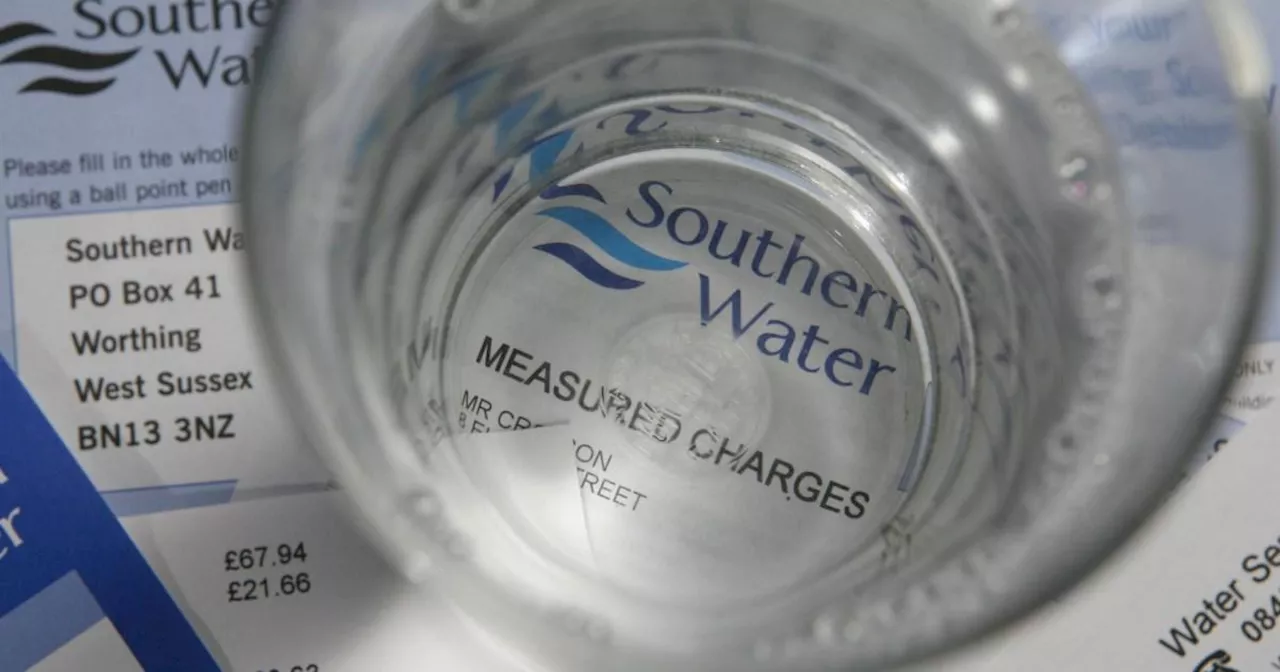 UK Water Bills to Soar by Average of 26% Amidst Cost of Living CrisisMillions of UK residents face a significant increase in their water bills, with the average annual cost set to jump to £603 from April 1st. This increase is attributed to the need for billions of pounds in investment to repair aging infrastructure, but critics argue that the privatization of water companies has contributed to the crisis.
UK Water Bills to Soar by Average of 26% Amidst Cost of Living CrisisMillions of UK residents face a significant increase in their water bills, with the average annual cost set to jump to £603 from April 1st. This increase is attributed to the need for billions of pounds in investment to repair aging infrastructure, but critics argue that the privatization of water companies has contributed to the crisis.
Read more »
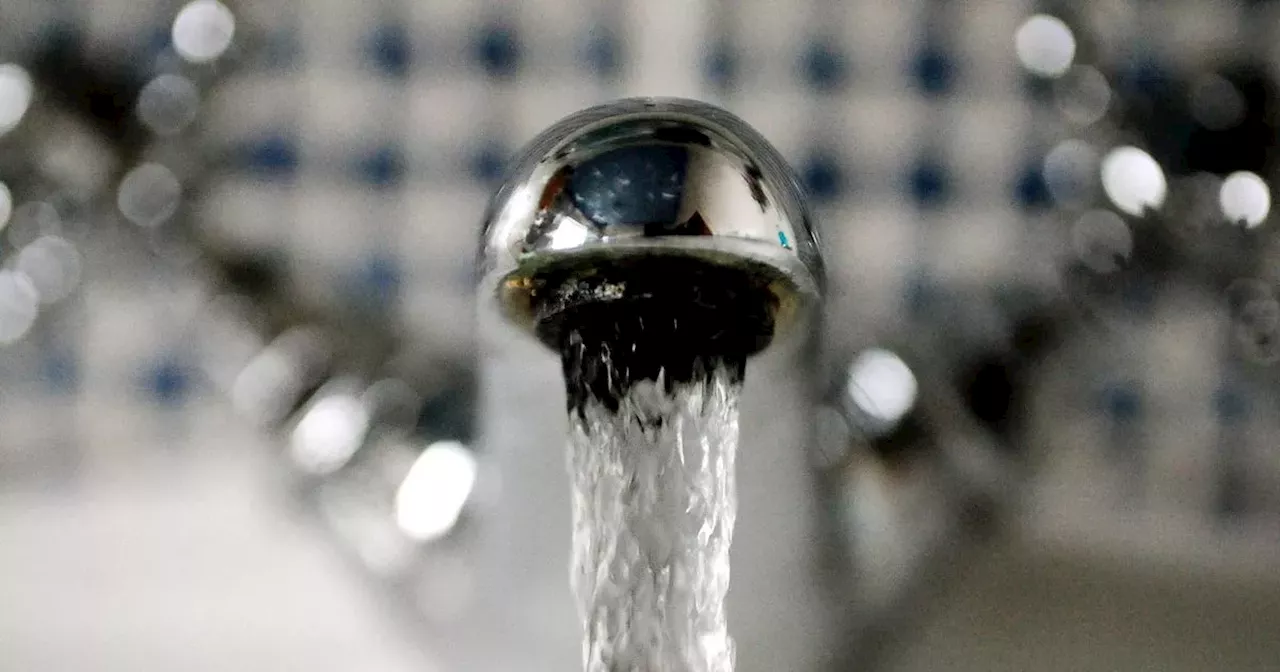 Water Bills in England and Wales Surge by an Average of 26%Average household water bills in England and Wales will see a significant increase from April 1st, with the average bill rising by £123, or 26%. This increase, driven by the need for infrastructure investment and inflation, will impact millions of households across the country.
Water Bills in England and Wales Surge by an Average of 26%Average household water bills in England and Wales will see a significant increase from April 1st, with the average bill rising by £123, or 26%. This increase, driven by the need for infrastructure investment and inflation, will impact millions of households across the country.
Read more »
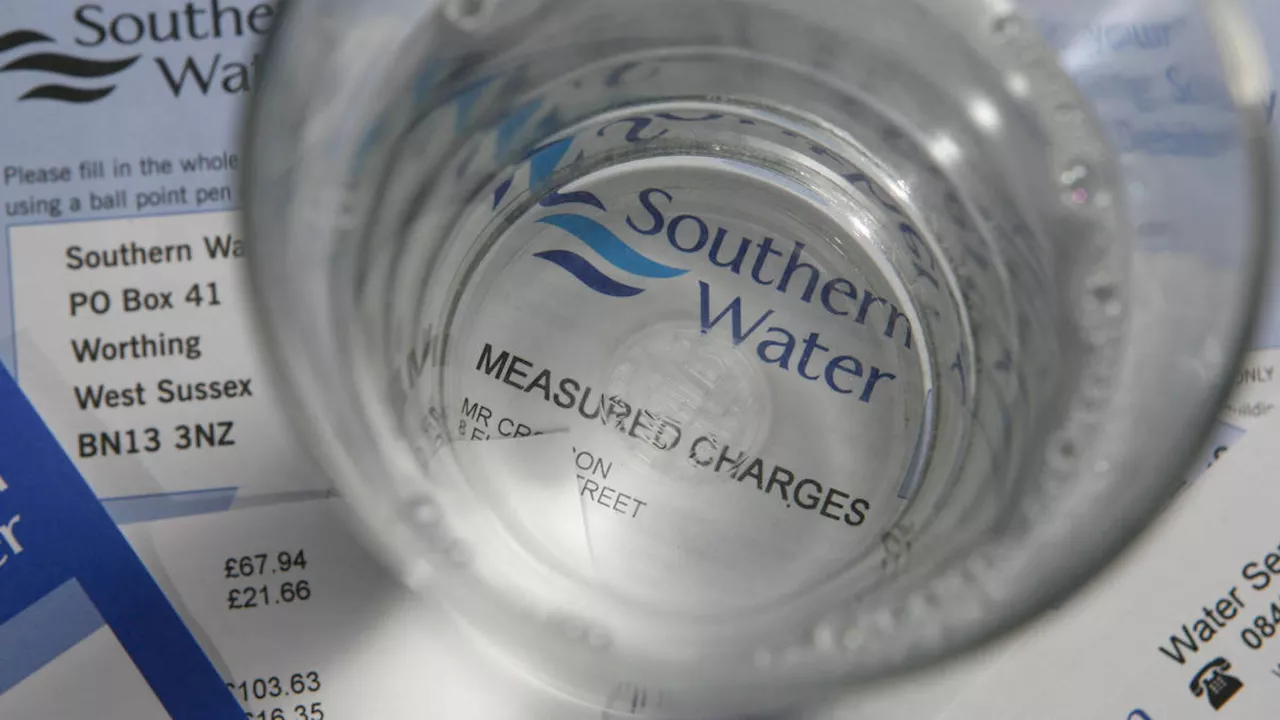 Water Bills in England and Wales Soar by Over £120Millions of households in England and Wales face a substantial increase in their annual water bills, with an average rise of £123 from April 1. While Water UK highlights record investments in infrastructure, the Consumer Council for Water warns of the impact on struggling households and calls for stronger financial support.
Water Bills in England and Wales Soar by Over £120Millions of households in England and Wales face a substantial increase in their annual water bills, with an average rise of £123 from April 1. While Water UK highlights record investments in infrastructure, the Consumer Council for Water warns of the impact on struggling households and calls for stronger financial support.
Read more »
 Water Bills Soar by Over 25% in England and Wales: 'Daylight Robbery' ClaimsWater bills in England and Wales are set to increase by over 25% next year, adding an average of £123 to the annual bill. This significant hike, the largest in three decades, has been met with criticism from campaigners, who argue that it is unfair given that water suppliers have paid out billions to shareholders while polluting rivers. The price increase, confirmed by the industry body Water UK, will take the average water and wastewater bill from £480 to £603 for the coming year alone. Millions of households will face even steeper increases.
Water Bills Soar by Over 25% in England and Wales: 'Daylight Robbery' ClaimsWater bills in England and Wales are set to increase by over 25% next year, adding an average of £123 to the annual bill. This significant hike, the largest in three decades, has been met with criticism from campaigners, who argue that it is unfair given that water suppliers have paid out billions to shareholders while polluting rivers. The price increase, confirmed by the industry body Water UK, will take the average water and wastewater bill from £480 to £603 for the coming year alone. Millions of households will face even steeper increases.
Read more »
